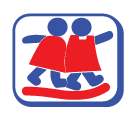What Should You Consider When Looking at Preschools for Your Highly Sensitive Child?
If you’ve long wondered why your child appears to be more deeply affected by loud noises, sudden schedule changes, or a loud and fast-paced environment than other children his or her age, you may be dealing with the heightened sensitivity that marks a highly sensitive child (HSC).
Indeed, the phenomenon of the HSC has only recently received much attention or press coverage, and many parents of sensitive children may not have much guidance on the best discipline methods, amount and type of media exposure, or preschool programs to help meet their child’s needs.
Fortunately, there are several popular pre-school and pre-k programs that may be a perfect fit for the sensitive child. Read on to learn more about the special considerations you’ll want to take into account when selecting a preschool program for your highly sensitive child as well as some of the ways in which your child’s needs may differ from those of his or her peers.
How Do the Needs of Highly Sensitive Children Differ From Those of Other Children?
Although sensitive children don’t have an “official” diagnosis (unlike those with autism spectrum disorders or other sensory processing issues), many psychologists believe that highly sensitive children are essentially born with a nervous system that’s always on alert. Highly sensitive children may be especially sensitive to sudden loud noises, like slamming doors or beeping car horns, and tend to be restless sleepers.
Many HSCs have sensory issues that overlap with those of children with an autism spectrum disorder. For example, an HSC may insist that the seam of their sock be perfectly lined against their toes or refuse to put on a certain shirt or pair of pants with a tag that’s too scratchy.
While non-HSCs may notice or even be bothered by these same issues, they’re better able to ignore them and move on while HSCs may find themselves unable to concentrate or continue on to another activity until the problem is solved.
HSCs are frequently described as “shy” or “standoffish”; although they can be extroverted, it can sometimes take them more time than other children to adjust to new situations and become comfortable and at ease with their surroundings.
While this may seem like a laundry list of factors that can make raising an HSC more challenging than a child without heightened sensitivity, HSC have a number of advantages as well. Their perception and ability to soak in others’ emotions and reactions can make them tremendously empathetic, and you may discover that your child is always the first on the scene to comfort a friend or pet who isn’t feeling well.
What Should You Keep in Mind When Selecting a Preschool for Your HSC?
There are a few factors you’ll want to place at the forefront of your mind during your decision-making process.
Transition Procedures
For highly sensitive children, transitions can be especially stressful. If your child already attends daycare, you may find that dropping him or her off is the most hectic part of your morning. By inquiring into the transition procedure of your chosen preschool or pre-k program, you’ll be better equipped to decide whether the transitions are fluid and flexible enough to meet your child’s needs or will send him or her into a tailspin immediately upon arrival.
Many HSC do better with a slow-paced transition to activities-for example, eating breakfast quietly at a table after they arrive at preschool rather than immediately being sent into a loud room with other children playing.
Independent Play
Schools that focus on learning through play and fostering independence can often appeal to the HSC. As opposed to more structured programs where children aren’t able to choose what they work on or where they play, these child-centered programs can give your HSC the flexibility to step back when an activity becomes overwhelming rather than force themselves to continue and go through a meltdown.
If you’re child doesn’t respond immediately to your attempts to help them, don’t worry too much. As your child gains independence and forms relationships with his or her peers, the activities that are perceived as overwhelming may become fewer and farther between. Talk to the professionals at Kid’s Country for more information.


